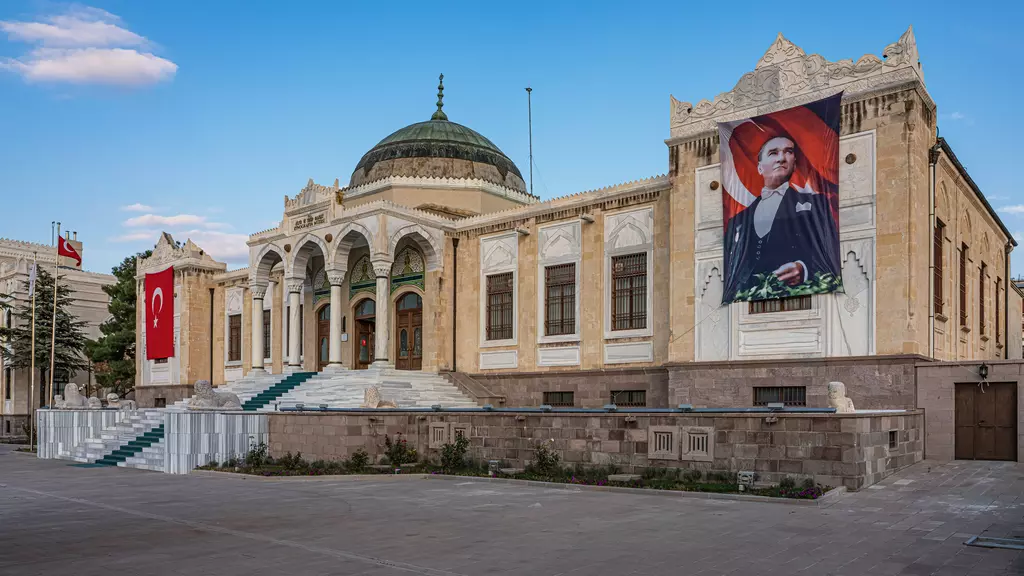Ethnography Museum of Ankara

- The Ethnography Museum of Ankara is one of Turkey’s most significant cultural institutions, dedicated to preserving and showcasing the country’s rich ethnographic heritage. Established in 1925 and opened to the public in 1930, the museum provides an in-depth look at the diverse traditions, lifestyles, and craftsmanship of Anatolian civilizations. Designed by renowned architect Arif Hikmet Koyunoğlu, the museum building itself is an architectural masterpiece, featuring elegant Turkish Neoclassical elements, grand marble staircases, and an impressive dome. Located on Namazgâh Hill, the museum offers a panoramic view of Ankara, making it an essential stop for history and culture enthusiasts.
- Inside the Ethnography Museum, visitors can explore a vast collection of artifacts that reflect Turkey’s rich cultural tapestry. The exhibits include traditional costumes, carpets, kilims, handwoven textiles, ceramics, metalwork, and wooden crafts from different regions of Anatolia. These carefully curated displays provide insight into the daily lives of Turkish people throughout history, highlighting the artistic and functional aspects of their craftsmanship. One of the most fascinating sections is the collection of Ottoman-era weaponry, calligraphy, and religious manuscripts, which showcase the intellectual and artistic achievements of past centuries. Additionally, the museum houses life-sized dioramas that depict traditional village life, wedding ceremonies, and historical trades, offering a glimpse into Turkey’s rich cultural traditions.
- A unique historical aspect of the museum is its connection to Mustafa Kemal Atatürk, the founder of modern Turkey. Between 1938 and 1953, the museum served as the temporary resting place for Atatürk’s body before it was transferred to Anıtkabir, his final mausoleum. This adds a profound national significance to the site, as it remains a place of historical reverence for Turkish citizens. The museum courtyard features a statue of Atatürk, honoring his vision for a modern Turkey that preserves its cultural heritage. Visitors can still see the hall where Atatürk’s casket was once displayed, marked by an inscription detailing this important historical period.
- The Ethnography Museum of Ankara is not just a collection of artifacts; it is a journey through Turkey’s cultural evolution. By preserving and presenting the country’s ethnographic heritage, the museum plays a crucial role in educating future generations about their roots. Whether you are drawn to intricate handicrafts, historical traditions, or the legacy of Atatürk, the museum offers a fascinating and immersive experience. It stands as a testament to the enduring richness of Anatolian culture and is a must-visit destination for anyone interested in Turkey’s deep and diverse history.
